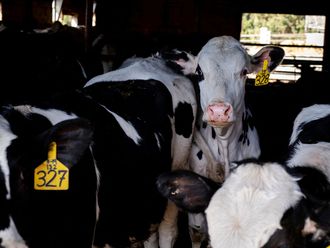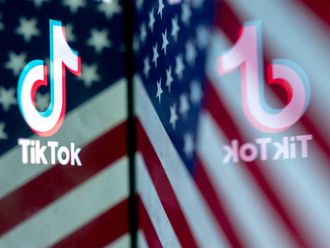New York
Congratulations everybody, ‘dumpster fire’ is now a dictionary entry, and here’s why
In 2008, a user at Urban Dictionary defined the “dumpster fire.” The figurative one, that is:
1. A complete disaster. 2. Something very difficult that nobody wants to deal with.
“It’s a very serious entry from Urban Dictionary, very well drafted,” said Peter Sokolowski, editor-at-large at Merriam-Webster, which introduced the dumpster fire to its own online version this week.
Merriam-Webster’s definition? “An utterly calamitous or mismanaged situation or occurrence.”
A lot has happened for the dumpster fire in the 10 years since Urban Dictionary first took a crack at defining it. In that short span of time, a “dumpster fire” has become a metaphor for, say, what it’s like to be alive and online in the present day. A dumpster fire is simply understood, immediately recognisable.
And these reasons are why the dumpster fire was a perfect candidate for inclusion in Merriam-Webster, Sokolowski said.
When considering which words and phrases to define, lexicographers “look for the removal of linguistic white gloves,” Sokolowski said, meaning it’s no longer a rare species.
When the word or phrase appears in, say, a news article with an explanation of its meaning, then it’s on the cusp. What the dictionary makers look for is what comes next, when the “writer presumes that the reader knows what it means.”
Dumpster fire was one of hundreds of new phrases and words the dictionary introduced into its online version this month. Others included “hate-watch,” “bandwidth” as a figurative term referring to emotional capacity, “embiggen” and “mansplain.”
In dictionary time, a decade is a really short span between first usage and a dictionary entry. But there are some that have made the leap even faster. “Initial coin offering” and “manspreading” are both new dictionary entries on Merriam-Websters’s online version. And both originated in 2014.
“That shows incredibly fast — you might say viral — spreading of the terms,” Sokolowski said.
And the term “dumpster fire”has become a meme. “If you’re a meme, if the word itself expresses a meme, then it spreads like wildlife.”
How did it spread? I searched for tweets before 2008 that mention the term, and of the few that weren’t about literal dumpster fires, I found a handful about sports, like: “that team is a dumpster fire. ” There were a few other uses. One person tweeted in 2008 that traffic was “a dumpster fire,” and another commented on how much he liked the phrase itself: “I just really like the term ‘dumpster fire.’ As in, ‘man, that guy is just a dumpster fire.’ It’s just a really funny way of saying ‘uh oh.’” By 2010, Sports Twitter really loved the dumpster fire. “My picks are turning into a nuclear waste and tire dumpster fire,” wrote one Twitter user, apparently disappointed by his fantasy team. Another tweet reads: “the Kings, such a dumpster fire. worst team in the league.”
Chances are, if you were tweeting about dumpster fires in 2010 that were not literally dumpsters on fire, then you were tweeting about sports.
That matched the searches Sokolowski and I ran in Nexis, a database of news article archives. Through 2012, most of the articles about dumpster fires were easily about dumpsters that were on fire. However, one 2011 newspaper article from the Times Herald in Port Huron, Michigan, about Big Ten football contained the following: “I think Ohio State is at the bottom of that list, but the Buckeyes spend so much time rotating between competent team and dumpster fire it’s tough to tell.”
Metaphor for elections
But the real shift came before the 2016 elections, when the dumpster fire’s use as a metaphor for the elections was so widely used that it prompted an oral history in the Daily Beast. “Things are bad everywhere, always, and forever,” said writer Erin Gloria Ryan.
“But if you read a description of the degree to which things have been bad in the world of politics lately, you’re likely to see two words: dumpster fire.” That rapid rise is reflected pretty well in Google Trends’s history of the phrase, which shows a spike upward in interest around October 2015. If anything, dumpster fire’s introduction to the dictionary comes after its most recent peak as a metaphor, which isn’t something that really bothers Sokolowski.
“We’re not chasing slang. We’re not trying to be something we’re not. We’re not trying to be Urban Dictionary,” he said. Later, he added: “If a word is used by some people, it should be in a dictionary for all people.”
— Washington Post
From slang to mainstream: some of the new entrants to Merriam-Webster
Cryptocurrency:
Mansplain: a man explaining something to a woman in a condescending manner
initial coin offering: which refers to the first sale of Bitcoin-like digital currency
unicorn: a start-up that is valued at one billion dollars or more
glamping: glamorous and camping
welp: to introduce a remark expressing resignation or disappointment.”
subtweet: a post that refers to a particular user without directly mentioning them, typically as a form of furtive mockery or criticism.
Embiggen: To make bigger or more expansive.
Silver Alert:informs the public when an elderly person goes missing.
life hack: a strategy or technique adopted in order to manage one’s time and daily activities in a more efficient way.
hate-watch: a verb that means to “watch and take pleasure in laughing at or criticizing (a disliked television show, movie).”
The Washington Post.












